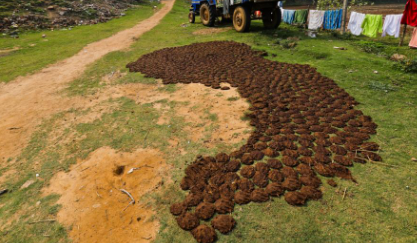Uttar Pradesh Leads India in Compressed Biogas Production
Uttar Pradesh is a big player in India’s renewable energy market, especially when it comes to making compressed biogas (CBG). The Center for Science and Environment (CSE) released an important report that showed Uttar Pradesh could create 24% of India’s CBG. This was revealed at a symposium in Muzaffarnagar put together by CSE and the Uttar Pradesh New and Renewable Energy Development Agency (UPNEDA). The meeting was about improving waste management, finding local clean energy solutions, and lowering reliance on compressed natural gas (CNG) imports.
Strategic Importance of Western Uttar Pradesh
Western Uttar Pradesh, including towns like Muzaffarnagar, Meerut, and Saharanpur, is a key area for making CBG because it has a lot of feedstock. Most of the state’s current and future CBG plants are in this area. Uttar Pradesh could probably complete 1,000 of the 5,000 CBG projects planned across the country under the Sustainable Alternative Towards Affordable Transportation scheme with just a fifth of the extra fuel it has on hand.
State’s Bioenergy Policy and Support
Uttar Pradesh is a leader with its ambitious bioenergy policy. It calls for funding of Rs. 750 crore for CBG projects from 2022 to 2027, along with subsidies and leasing choices. The policy aims to help CBG producers deal with common problems, improve good practices, open up new business possibilities, and teach local groups about the advantages of bioenergy.
Challenges Hindering CBG Adoption
Even though the outlook is positive, the CBG sector faces many problems:
- Bioslurry Management: Bioslurry disposal is hard because it is often seen as trash instead of a useful by-product. There needs to be education about how useful it is as organic waste.
- Inconsistent Gas Offtake: CBG plants often use only some of their available gas because oil and gas companies don’t always buy it and there aren’t any close CNG pipelines.
- Skilled Personnel Shortage: The world needs highly trained people to run biogas systems, so specialized training centers should be set up.
- Financial Barriers: Banks are unwilling to lend money to CBG projects because they see them as risky. The government might have to back the projects with guarantees to get banks to lend money.
Solutions and Strategic Measures
To lessen these problems, changes to policies are being thought about. Some of the ideas being considered are using a variety of feedstocks to make the process more sustainable and making farmers partners in local bioenergy projects so that they directly benefit from them. Getting help from the government and making the payment system more clear are also important steps forward.
Month: Current Affairs - June, 2024
Category: Reports & Indexes Current Affairs





